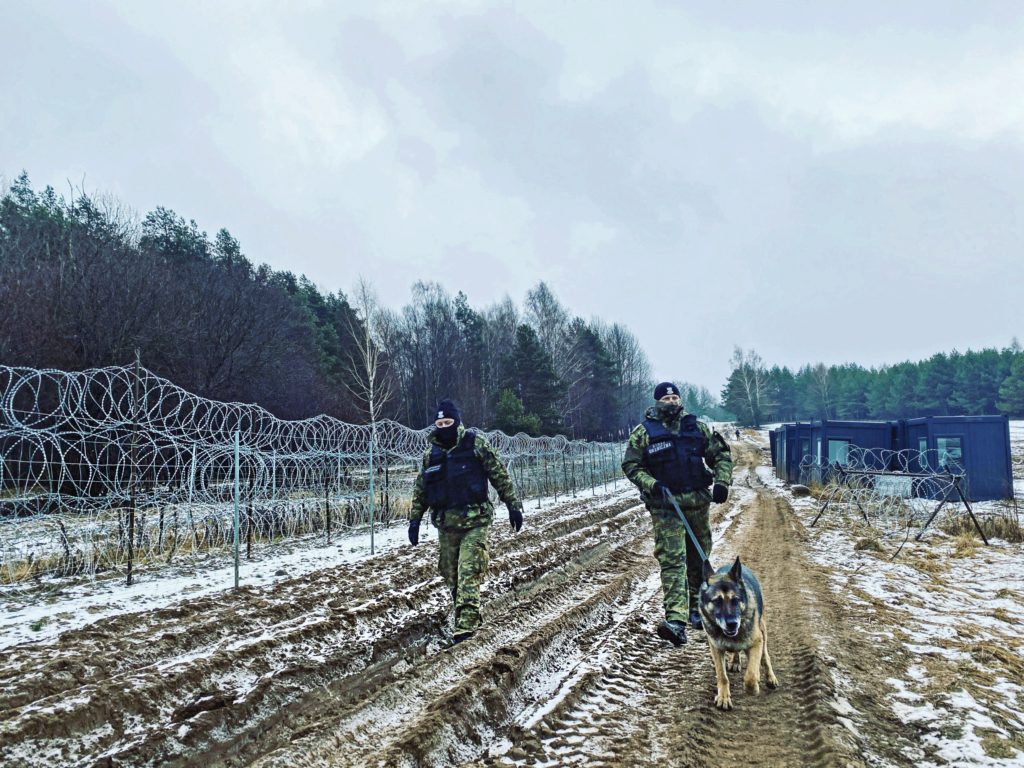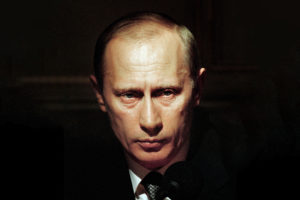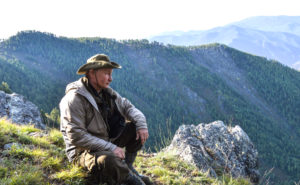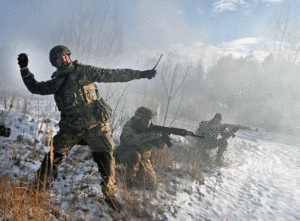A couple of weeks ago, in a biting sleet wind, I visited the graveyard of the tiny village of Bohoniki in Poland’s far north east, home to Poland’s minuscule Tatar Muslim minority, descendents of the Mongol Golden Horde. On the graveyard hillock beneath the swaying pine trees, below gilded crescent moons and Arabic calligraphy, the names on the headstones — Miroslawa Safarewicz, Ali Bogdanowicz, Aleksander Sulkiewicz — spoke of centuries of Tatar assimilation since their arrival on horseback in Poland in the Middle Ages.
The four newest headstones, decorated with plastic flowers, gave evidence of more recent arrivals — the graves of migrants from Yemen and Syria who died trying to cross the nearby border from Belarus, after the country’s strongman Alexander Lukashenko deployed illegal migration as a weapon against Poland and the EU last autumn.
The Tatars of Bohoniki prepare and deliver food to their co-religionist migrants who make it through the closed border, hiding in the forests, as well as to the Polish troops and border guards whose role it is to hunt them down and return them across the barbed wire border fence. Outside the village’s small wooden mosque, a banner spread against the railings declares: “Thank you for your service and for protecting our border #PolishMilitaryWall.” For centuries, the Tatar minority distinguished itself through loyal military service to Poland’s rulers, serving as cavalry in the contested steppes of Ukraine, against the Ottomans at Vienna, and conducting one of the last Polish cavalry charges against the invading Germans in 1939.
This bleak stretch of borderland, an extension of the great Eurasian steppe with no defensible natural frontiers, has always witnessed the movement of peoples and the sudden extinction of nations following the ebb and flow of imperial borders. The golden onion domes of Orthodox churches rise up from the wooden cottages of villages which seem to have spilled over the natural border: though of course it was the borders which came after the peoples, washing back and forth in bloody waves.
An ethnic map of the province in the late 19th century reveals a Pollock painting of peoples, two of whom — the Jews and the Germans — have been entirely expunged from the region within living memory. Twice in the past 300 years, Poland has vanished entirely, carved up by hungry neighbours. Twice in the twentieth century, these borderlands were drenched in blood as great empires rose and fell. Now, once again, Europe’s eastern marches are witnessing the massing of armies and the threat of a sudden, violent reordering of borders as a great empire wanes.
At its moment of greatest strength in the Nineties, the American empire expanded to encompass these borderlands, taking the former satellite states of the Soviet Union under the Nato umbrella. Now that the great empire is itself weakened by political turbulence at home and an existential challenge in East Asia, a resurgent Russia feels emboldened to renegotiate this settlement by the threat of force, demanding that not just that Nato advances no further eastward, but also that it withdraws from the region.
No-one can predict with certainty what will happen next: but as troops and materiel flood westwards in vast numbers across Russia to the eastern marches of America’s European empire, it seems clear our continent is at a great inflection point, like 1914 or 1939, 1945 or 1989. The generation-long slumber of the post-Cold War era has ended: Europe is awakening to history once again.
With every day, it becomes more likely that a great hammer blow is about to descend on Ukraine. More than 100,000 Russian troops have been deployed to Ukraine’s frontiers, in a great arc from Belarus to the north to the Black Sea in the southeast. Russia’s annexation of Crimea in 2014 and its parallel detachment of two predominantly Russian-speaking portions of eastern Ukraine did not bring about the great reordering Putin sought in Eastern Europe. The Minsk agreement that sought to end the war did not bear fruit; Ukraine’s armed forces are stronger than they were eight years ago, and the Ukrainian purchase of Turkish Bayraktar attack drones threatens to overturn the fragile stalemate in the country’s east.
For Russia, there is therefore no better time to attack than now, while Europe is weak and divided and the Americans are distracted. The sheer size and strength of the Russian armed forces, which have rapidly modernised since 2014, will likely overwhelm any Ukrainian opposition. What happens next will be Putin’s choice, and perhaps he has not yet decided.
Yet the military toolkit he has assembled in recent weeks gives him a wealth of options: he could destroy the Ukrainian armed forces from afar with stand-off weapons without any new border incursions; he could formally annex the breakaway regions of Donetsk and Luhansk; he could even attack along Ukraine’s Black Sea coast, deploying the naval infantry and amphibious armoured vehicles recently moved to the border from the Russian Far East, capable of seizing territory from Mariupol in the east as far west as Odessa and the border with Romania; finally, Russia could move on Kyiv itself, striking both south from Belarus and westward across the flat plains in a display of armoured warfare of a type Europe has not seen since 1945.
Ukraine’s options in all this are limited in the extreme. The claims by Western thinktankers that Russia will have no stomach for the guerrilla warfare that will ensue seem doubtful: Putin is unlikely to send his troops to the Ukrainian nationalist heartlands of the west, where the topography lends itself to armed resistance.
The flat plains of the country’s east, though useless for an insurgency, are ideal for a quick armoured blitzkrieg all the way to Kyiv and the Dnieper river. Russia will control the airspace above the battlefields, and a Ukrainian repeat of the successful deployment of Bayraktar drones by Azerbaijan against a degraded Armenian army therefore seems impossible. Ukraine’s greatest chance of avoiding military defeat and perhaps dismemberment at Putin’s hands lies in Western diplomacy: and this is surely now the country’s greatest curse.
The simple fact is, Nato will not go to war with Russia for Ukraine. As it stands, Ukraine is about to suffer a historic defeat to defend the illusion that it may one day join the Nato alliance, a point of principle that everyone involved knows to be fantasy. By sending Ukraine munitions and non-lethal aid, Nato powers like the US and Britain, as well as the Baltic states, have already approached the utmost limits of their response to Russia. The threat of sanctions will count for less than our leaders claim against a Russia that has successfully reordered its economy to cope with the Western sanctions deployed since 2014, and which is increasingly reorienting itself towards America’s great rival China. Indeed, it is now Russia that has the upper hand in threatening Europe by withholding its own vital resources.
It is midwinter after all, and Europe is dependent on Russian gas to keep European voters warm in their homes. Almost half of Germany and Poland’s gas supply comes from Russia; countries like Slovakia, Latvia, Estonia and Finland are almost 100% dependent. No wonder that Germany’s government is doing all that it can to avoid becoming embroiled in this confrontation, refusing to supply Ukraine with munitions, and with Germany’s new SPD chancellor Olaf Scholz refusing even to take Biden’s calls on the crisis. Europe has had since at least 2014 to wean itself off its dependence on Russia, and chose not to, with Germany instead deepening its energy dependency by shuttering its nuclear power plants and constructing the Nordstream 2 pipeline despite American pressure to cancel it.

Instead, it is France, energy secure through its network of nuclear power stations, that is playing the greatest EU role in defending Nato’s eastern borders, pushing for a forward presence in Romania and sending warships to the Black Sea. There is a great irony here: the scepticism of Poland and the Baltic states over French proposals for greater European capacity to defend itself from external threats was used by the German security establishment to dampen any enthusiasm for strategic autonomy, with German politicians and analysts making great rhetorical play of the sacred Nato bond. But now that Nato’s integrity is threatened by Russia’s demands that the alliance “pull back” from Romania and Bulgaria, which joined in 1997, Germany recuses itself from involvement. Through its dependency on Putin’s goodwill, it is ironically Germany that has distanced itself from Nato, a negative form of strategic autonomy from the US, if not from Russia. That great weakness at the heart of Europe, Merkel’s parting shot, now threatens the security of the continent’s eastern fringes.
One way or another, Nato’s newer Eastern members will now learn the value of America’s security guarantee compared to that of a strong Europe capable of defending itself. Biden’s initial remark that the United States would not severely punish a “minor incursion” into Ukraine’s territory did not inspire confidence; his administration is now briefing that America is considering deploying thousands of troops to the eastern Nato countries.
The limited deployment of US forces in Poland and the Baltic states after 2014 was a purely symbolic exercise: the decision to deploy tens of thousands of American troops, if it actually occurs, is a signal to Russia that America is prepared to defend the European half of its core empire if necessary, despite the greater need to concentrate its attention and resources on the looming showdown in the Pacific’s other half. Rather than being a force multiplier for the US, Nato obligations now weaken America’s overall position: Europe’s weakness has now become America’s burden.
For Britain, the options for involvement are limited. We are perhaps fortunate that decades of neglect have left the Army unable to deploy anything but a token force to the region. Even if it had a better record of success in recent conflicts, the British Army is now simply too small and weak to play any role in a major European war. The Russian forces massed on Ukraine’s border are already larger than the entire British Army, and their numbers grow every day.
Yet British politicians always display an appetite for getting involved in distant conflicts greater than their capabilities allow: it would surely be better for our political opposition to now focus their attention on what, if anything, Britain’s response should be to the looming war in our home continent than to drag on their weeks-long exegesis of civil servants’ illicit cheese and wine parties.
There is not much time to waste: a Russian armoured push will need to take place while the ground is still hard and frozen, before the spring thaws settle in and the soil turns to mush. This year’s late snows have likely delayed the hammer blow: Russia’s announcement of joint military exercises with Belarus between the 10th and 20th of February indicate the probable starting date. The deployment of Russian troops in large numbers to southern Belarus, whose border is less than 60 miles from Kyiv, is a major threat to Ukrainian planners: even if Putin does not decide to take the capital, the need to guard against a sudden push will force Ukrainian generals to spread their forces thinly, weakening their response to an assault elsewhere.
Principled though it may have been, the vocal support Poland and the Baltic states gave to Belarus’s opposition after last year’s disputed election may not have been wise. By driving Lukashenko further into Putin’s embrace just to survive, they have allowed Russian forces to deploy closer to the European Union’s borders than was previously the case, and enraged a mercurial neighbour. The recent migrant crisis with Poland, at the border post at Kuznica, just a few minute’s drive from the Tatar village of Bohoniki, was the immediate result, and perhaps history will record it as the opening incident of a great and terrible conflagration.
With European nations from Sweden in the Baltic to Romania in the Black Sea now deploying their limited troops and equipment in a defensive crouch, a great confrontation is developing across the continent’s east. All the states involved — apart from Britain — are acting according to the rational motives of self-interest.
It was natural for Nato’s eastern nations to seek America’s defence guarantees against their historic master, just as it is natural for Russia to resent the alliance’s expansion to its own borders. It was natural and rational for the United States to expand Nato eastward at the moment of its greatest strength and Russia’s greatest weakness, just as it is natural and rational for Russia to seek to renegotiate Nato presence now that her own forces are stronger than they have been since the fall of the Soviet Union, and now that the American empire seems to have entered its own period of decline.
In the coming days, the likelihood is that a shock and awe campaign analogous in scale to that of America in Iraq will take place in Ukraine; its chances of success seem far greater. The demands Russia has made of the United States — over the head of a Europe kept weak and powerless by its own leaders — cannot be met without America ceding its imperial role and prestige. Perhaps they are not intended to be met, and perhaps by enhancing the Nato presence on its borders, they will turn out to be counterproductive.
Yet once again, these flat and snowy borderlands seem destined to play their allotted role as arena for the contest of great empires, and the cockpit of Europe’s bloody history.
First published on 31 January 2022
Disclaimer
Some of the posts we share are controversial and we do not necessarily agree with them in the whole extend. Sometimes we agree with the content or part of it but we do not agree with the narration or language. Nevertheless we find them somehow interesting, valuable and/or informative or we share them, because we strongly believe in freedom of speech, free press and journalism. We strongly encourage you to have a critical approach to all the content, do your own research and analysis to build your own opinion.
We would be glad to have your feedback.
Source: UnHerd Read the original article here: https://unherd.com




